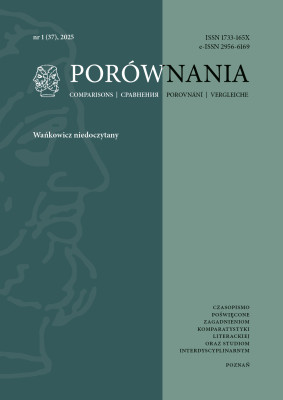Ile Wańkowicza w Szczygle
Melchior Wańkowicz, the presumed father of Polish literature journalism, is also the creator of the genre theory. Self-awareness prompted him to publish two important books – Prosto od krowy (Straight from the Cow) from 1965 and the two-volume "Karafka La Fontaine’a" (La Fontaine’s Carafe) – which, although often criticized, became something of a manual for successive generations of reporters. It’s largely due to the author of "Ziele na kraterze" (Greens on the Crater) that we can talk today about the adepts of the Polish Literature Journalism School. One of them is Mariusz Szczygieł. Following Wańkowicz’s track, the reporter and author of many books about Czech issues, decided to write his own textbook about a theory of modern literature journalism, entitled "Fakty muszą zatańczyć" (The Facts Must Dance). Just like Wańkowicz’s books, it is some sort of a manual, in which the author transfers many universal and precious rules to follow when writing a reportage. In my article, I try to show how Wańkowicz theory influenced a modern way of thinking about Szczygieł’s reportage, taking into account the transformations that occurred in genre research during the 20th and 21st centuries. It is worth showing that the thesis formulated by Wańkowicz, referring both to the problematics of literariness and truth and facts in the reportage, and arrangements to the formal side all return in Szczygieł’s considerations. Even though he places them in modern entourage and consciously discusses the genre development as “after Kapuściński”, it is obvious that reading "Fakty muszą zatańczyć" exposes a timelessness of reflections incorporated in Wańkowicz’s theory.
| Tytuł dokumentu | Typ | Rozmiar |
|---|---|---|
| porownania.37.16.WISZNIOWSKA | [pdf] | [181 KB] |
